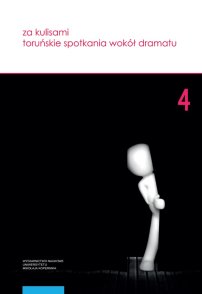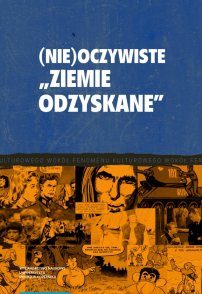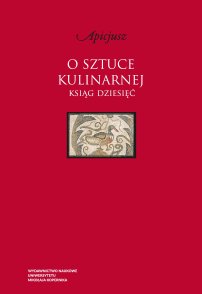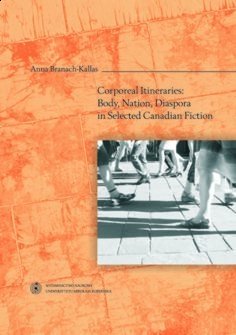jest adiunktem w Katedrze Filologii Angielskiej Uniwersytetu Mikołaja Kopernika w Toruniu. Jest autorką Corporeal Itineraries: Body, Nation, Diaspora in Selected Canadian Fiction (2010) oraz In the Whirlpool of the Past: Memory, Intertextuality and History in the Fiction of Jane Urquhart (2003), a także licznych artykułów. Jej zainteresowania badawcze obejmują m.in. zagadnienia z zakresu teorii postkolonialnej, traumy i wojny w literaturze, komparatystykę, cielesność, gotycyzm. Od 2009 roku pełni funkcję kierownika Centrum Badań Kanadyjskich na UMK.
Corporeal Itineraries: Body, Nation, Diaspora in Selected Canadian Fiction
Rozprawa Corporeal Itineraries: Body, Nation and Diaspora in Selected Canadian Fiction [„Meandry cielesności: ciało, naród, diaspora w wybranych powieściach kanadyjskich”] poświęcona jest studium cielesności w powieściach współczesnych autorów kanadyjskich wywodzących się z mniejszości rasowych: Chorus of Mushrooms Hiromi Goto, Fall On YourKnees Ann-Marie MacDonald, At the Full and Change of the Moon Dionne Brand, Le livre d’Emma Marie-Célie Agnant oraz News from a Foreign Country Came Alberto Manguel. Punktem wyjścia jest przenikanie się ontologicznych i epistemologicznych teorii cielesności - ciało analizowane jest w rozprawie z perspektywy fenomenologicznej oraz feministycznej, lecz również w ramach symboliki odnoszącej się do dwóch form tożsamości zbiorowej: narodu i diaspory. Autorka wykracza jednakże poza kontekst kanadyjski, przyjmując perspektywę porównawczą i transnarodową. Kanada zostaje w ten sposób usytuowana w kontekście geograficzno-kulturowym obu Ameryk, co uwypukla problem wielokierunkowych migracji oraz procesów dekolonizacyjnych, a także nasuwa pytania dotyczące relacji pomiędzy ciałem, narodem a diasporą w wielokulturowych społeczeństwach ery globalizacji. Rozprawa zakłada pewną dynamikę reprezentacji cielesności - z jednej strony ciało jako obiekt percepcji staje się metaforą traumy narodowej i rasowej oraz wyznacznikiem granic społeczności, z drugiej strony, w ujęciu ontologicznym, stanowi punkt wyjścia do refleksji na temat egzystencji Innego. Ukazuje, jak dominujące dyskursy rasowe, nacjonalistyczne oraz patriarchalne kształtują istnienie ciała Obcego, podkreślając jednak również, jak byt ciała podważa te stereotypy. Meandry cielesności wskazują zatem na to, że cielesność odgrywa kluczową rolę nie tylko w dziedzinach ontologii i poznania, lecz również estetyki, socjologii oraz etyki.
Corporeal Itineraries: Body, Nation, Diaspora in Selected Canadian Fiction is an attempt to situate the body as central to the reading of literature and to approach national(ist) and diasporic issues from a corporeal perspective influenced by phenomenological, postcolonial, and feminist discourses. Although the book interrogates the mechanisms of the exclusion of bodies perceived asabject from the Canadian family of the nation, in her analyses of Chorus of Mushrooms by Hiromi Goto, Fall On Your Knees by Ann-Marie MacDonald,At the Full and Change of the Moon by Dionne Brand, Le livre d’Emma by Marie-Célie Agnant, and News from a Foreign Country Cameby Alberto Manguel, Anna Branach-Kallas moves beyond the Canadian context. The transnational and comparative frameworks she employs in her interpretation situate Canada as part of the Americas, a geo-cultural perspective that foregrounds multiple migrations and complex (de)colonization processes. As a result, her study provokes disturbing questions about the relation between bodies, nations, and diasporas in a globalized world. Branach-Kallas shows how material bodies both incorporate and resist gendered and racist stereotypes and proposes to see the (female) body as a locus of resistance to the manipulations of patriarchal, racist, nationalist, and homophobic ideologies. Through its engagement with corporeality, her studysuggests that the body playsa crucial role not only in the realms of ontology and cognition, but also aesthetics, sociology, politics, and ethics.
Acknowledgements / 7
Introduction / 9
Chapter One
Canadian Itineraries: Bodies, Nations, Diasporas / 25
Chapter Two
Disorienting Bodies: Hiromi Goto's Chorus of Mushrooms / 57
Chapter Three
Gothic Bodies: Ann-Marie MacDonald's
Fall On Your Knees / 101
Chapter Four
Bodies in Maroonage:
Dionne Brand's At the Full and Change of the Moon
and Marie-Célie Agnant's Le livre d'Emma / 151
Chapter Five
Bodies in Pain: Alberto Manguel's
News from a Foreign Country Came / 215
Conclusion / 269
Bibliography / 285
Index / 313
Anna Branach-Kallas
- Conflicting discourses, competing memories: Commemorating The First World War
- Uraz przetrwania. Trauma i polemika z mitem pierwszej wojny światowej w powieści kanadyjskiej
- Litteraria Copernicana 3(27)/2018: Pierwsza wojna i (nie)pokój
- Dialogues with Traditions in Canadian Literatures Dialogues
- In the Whirlpool of the Past: Memory, Intertextuality and History in the Fiction of Jane Urquhart
- Corporeal Itineraries: Body, Nation, Diaspora in Selected Canadian Fiction
- The nation of the other: constructions of nation in contemporary cultural and literary discourses
Powiązane

Canadian passwords. Diasporic Fictions into the Twenty-First Century
Mirosława Buchholtz
Dialogues with Traditions in Canadian Literatures Dialogues
Piotr Sadkowski, Anna Branach-Kallas
The Axiology of Spoken Interaction. An Essay on the Organisation of Conversational Behaviour
Przemysław Żywiczyński
Uraz przetrwania. Trauma i polemika z mitem pierwszej wojny światowej w powieści kanadyjskiej
Anna Branach-KallasInne z tej kategorii

Za kulisami. Toruńskie spotkania wokół dramatu. Edycja czwarta

(Nie)oczywiste „Ziemie Odzyskane”

Pan Samochodzik i…







